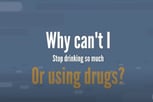Every day people become addicted to drugs and/or alcohol for a variety of reasons. While every individual who suffers with addiction may have their own personal reason for becoming addicted to substances, these reasons can cross racial, gender and socioeconomic borders without hesitation. However, when it comes to a relapse, the triggers and treatment plan differ greatly between men and women.
Here, we take a look at the biggest differences.
Relapse Trends in Women
Women are less likely to relapse than men, but studies have shown that when a relapse does occur, it is caused by a trigger that differs from that of men. According to a study published in the Harvard Mental Health Letter, women have reported the following triggers that have led them to relapse:
- Undiagnosed psychiatric disorders such as depression, bipolar disorder and schizophrenia
- Inadequate coping skills in handling pressure outside of recovery
- A lack of support from friends and family
- Loss of self by caring for others and/or responsibilities
- Entering into the dating world too soon after entering recovery
Therefore, when approaching treatment for women, counselors should have a perspective that encompasses everything in a woman’s life, including family, friends, social and economic status, career, environment, and anything else that may be disrupted by the need to abuse substances. Treatment for a relapse in women proves to be more successful when these components are addressed as it develops gender competency in women by reinforcing the importance of her role in all of these areas.
Relapse Trends in Men
Although women have more threats of relapse than men do because of the amount of triggers that are present in their daily lives, men actually fall victim to relapse slightly more than women.
One major reason for this is the strong need for men to self-medicate and their unwillingness to seek treatment for the cause of the self-medication. Even though society is becoming more receptive to mental health care and substance abuse treatment, the male demographic still falls behind in seeking treatment when it is needed. Peer pressure in celebratory occasions and the male inclination that they are in control of their addiction is another cause of relapse. This reason also coincides with the inability for most males to give up certain relationships or connections that may be contributing to their addiction (Green, n.d). Without the help of a treatment plan, men are more likely to fall back into a pattern in which they feel comfortable and accepted.
When a male seeks treatment, the treatment plan must include a sense of community and belonging for the men. Building healthy relationships with like-minded individuals will help men resist the urge to continue their toxic relationships, and reduce the risk of a relapse. Combining these healthy relationship-building skills in conjunction with continued care for a specific duration can help men create healthy habits that will lead to abstinence.
Moving Forward
While men and women have noticeable differences between them when it comes to reasons for relapse, this does not rule out the fact that every addiction—along with the person—is unique and should be treated as such, regardless of gender. Each person who suffers from addiction has his or her own personal triggers that can result in a relapse, and it is crucial that we have a thorough treatment plan that can equip all addicts to handle their own specific triggers and achieve sustained abstinence from substances.
Knowing gender-specific patterns along with each individual’s triggers may just be the first step in creating such healthy behavioral changes.
If you or someone you know is seeking help from addiction, please visit our directory of treatment centers or call 800-891-8171 to start the path to recovery today.








